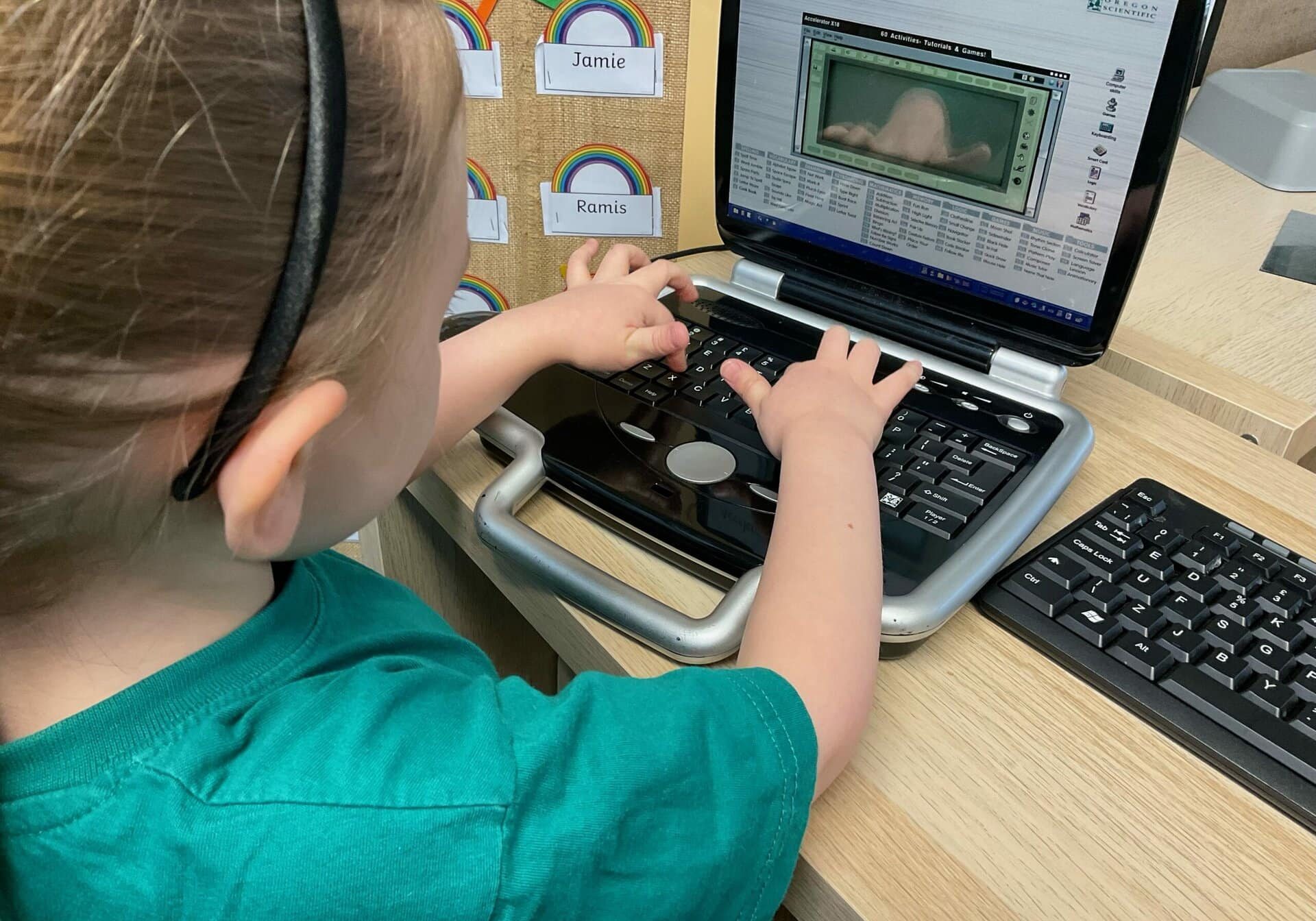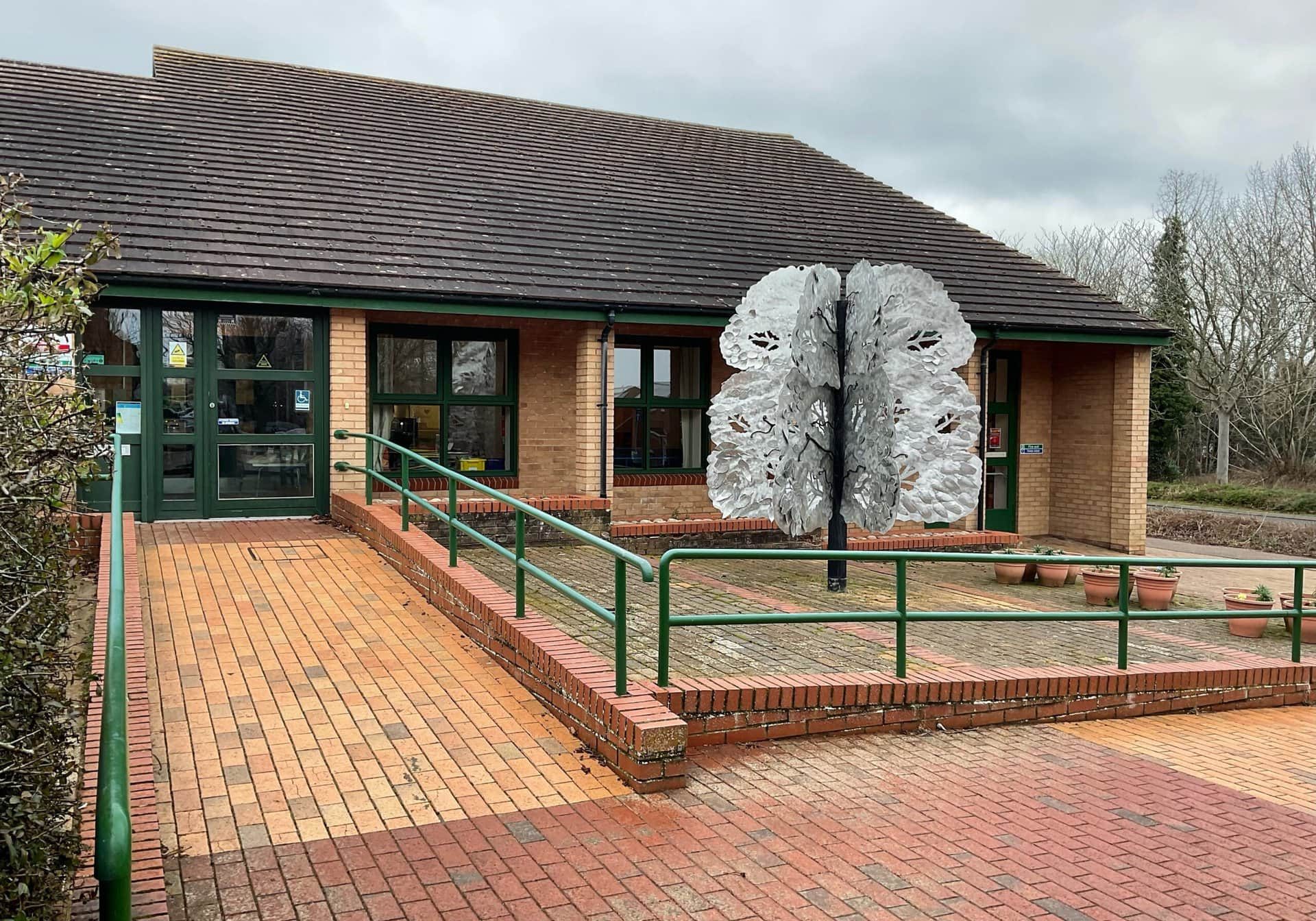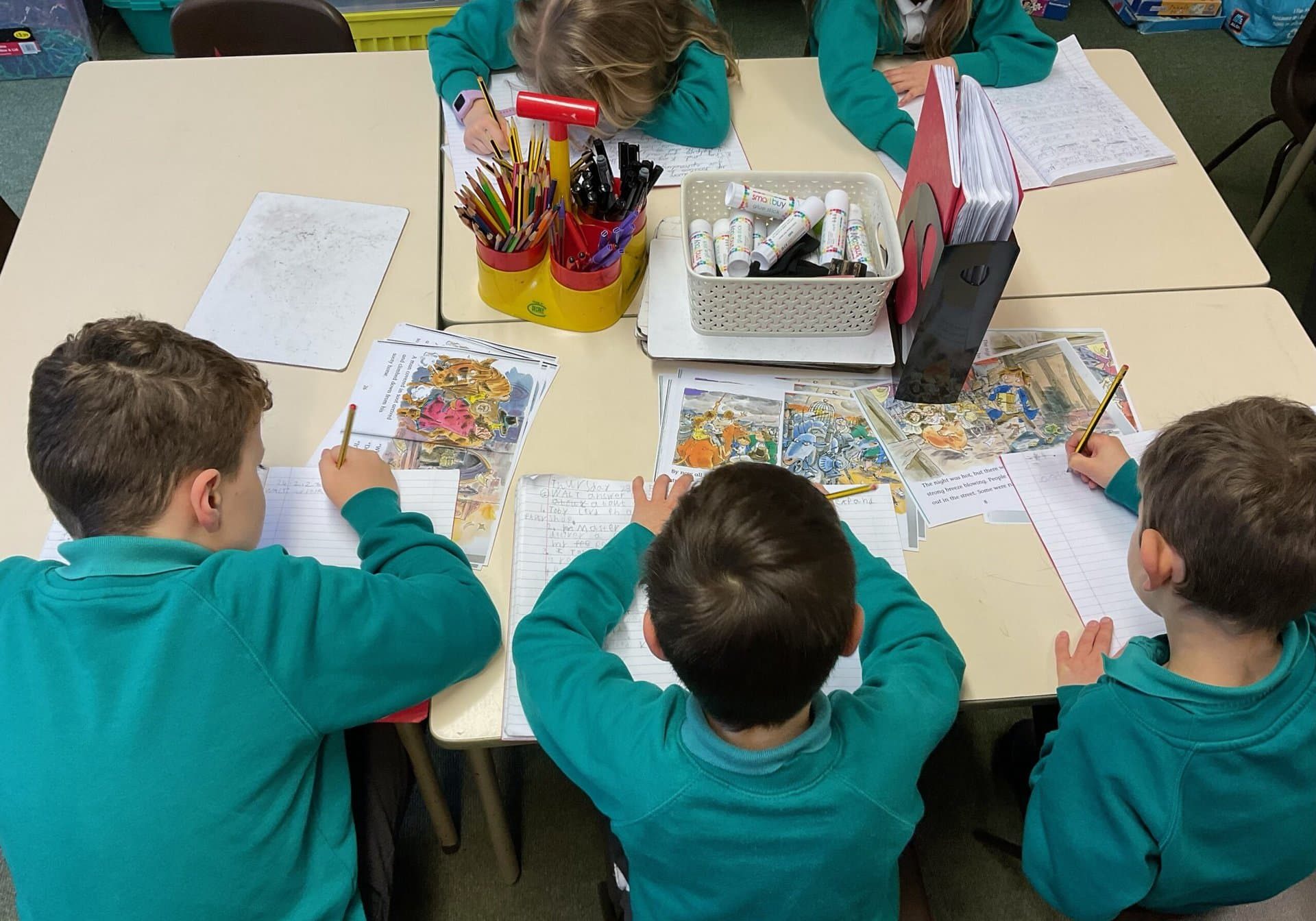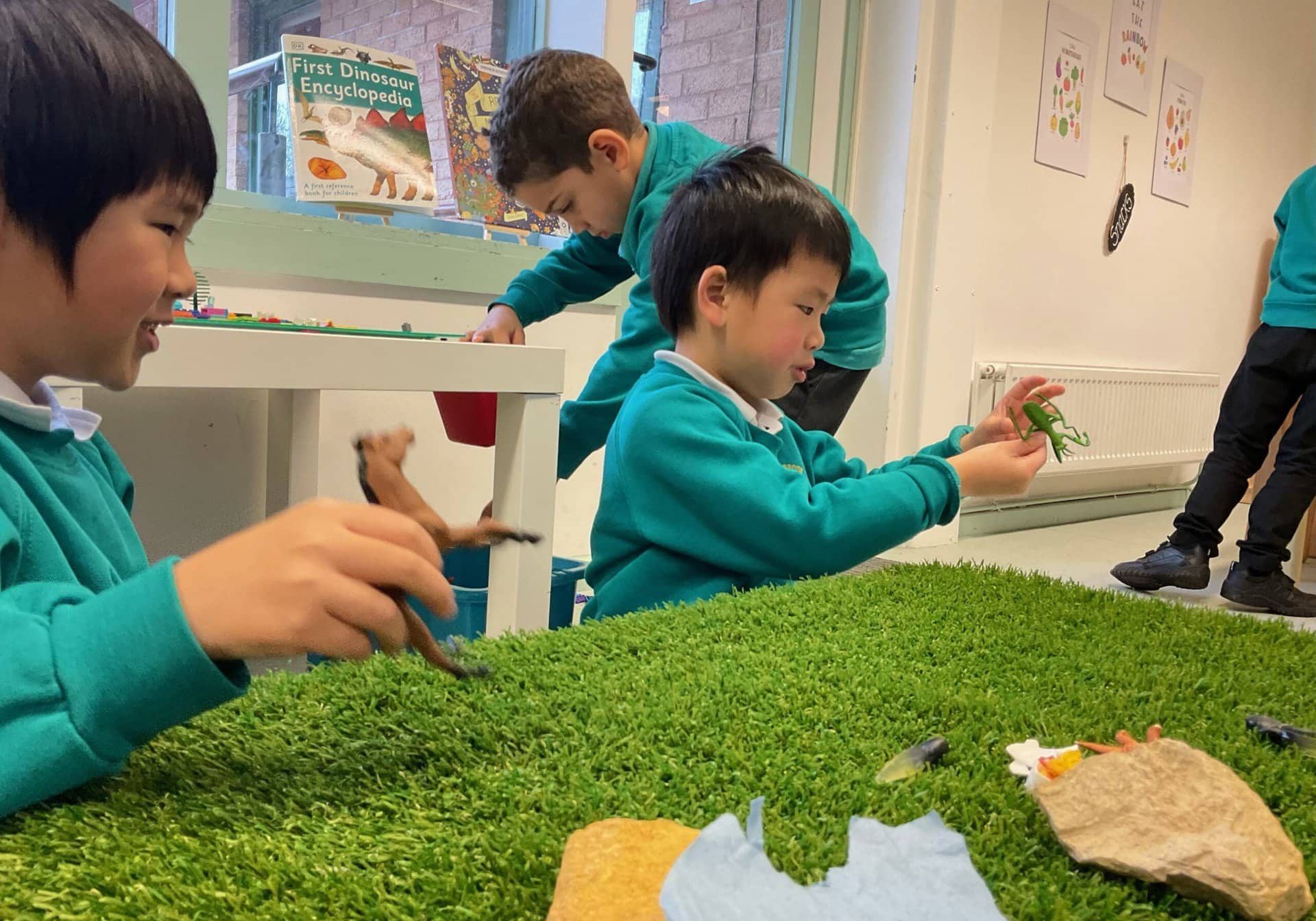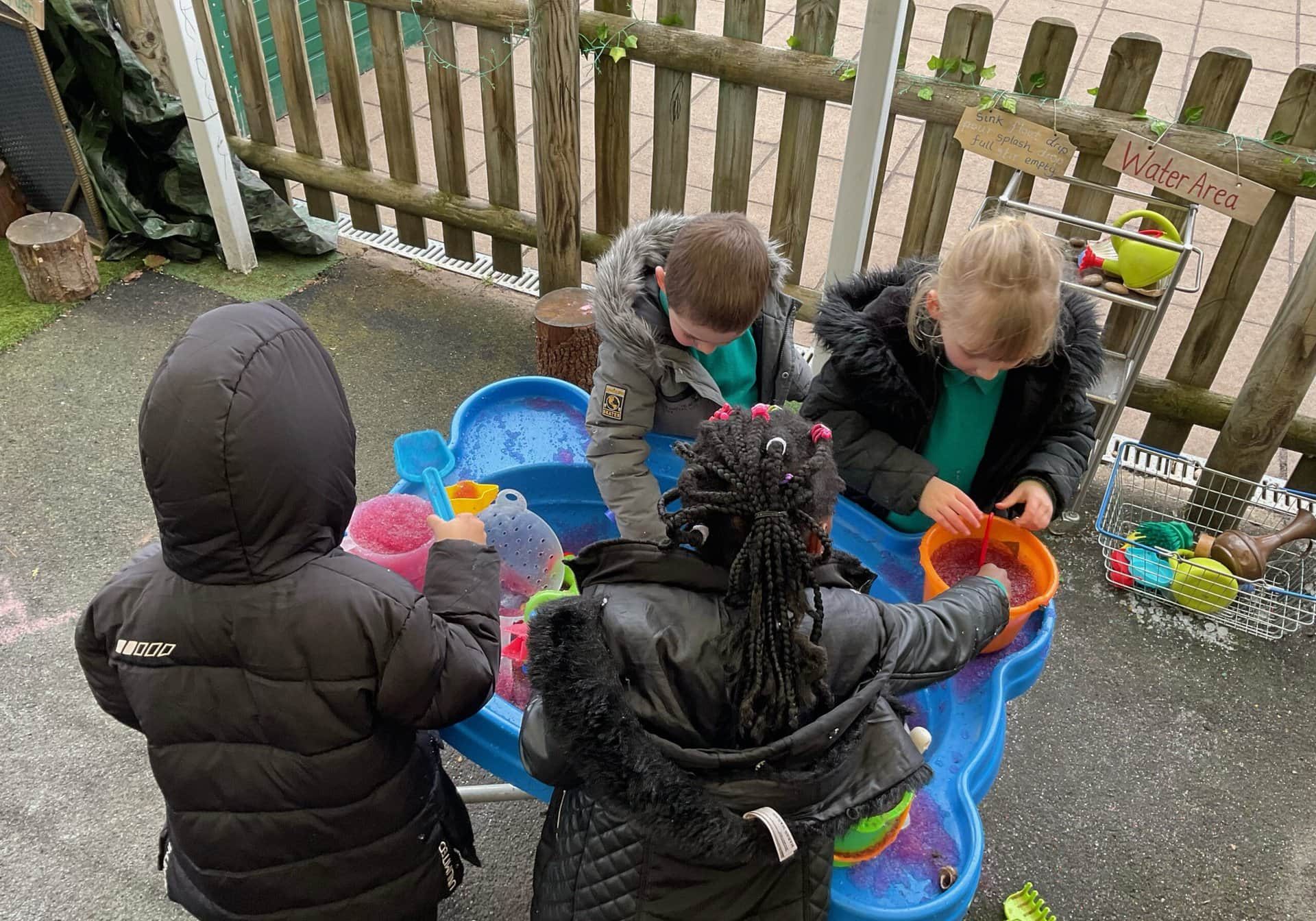Reading
Phonics Screening Check: Parent Presentation - February 2025
Additional useful links for phonics screening preparation:
- Phonics screening check 2024 materials
- Phonics screening check 2023 materials
- Read Write Inc Speed Sound Chart
RWI Parent Presentation and Demo Morning - October 2025
At Ashbrook School, it is our intent to ensure that, by the end of Key Stage 1, all pupils are able to read with fluency, confidence and enjoyment. We have fidelity to the ‘Read, Write, Inc’ programme to support the systematic, synthetic teaching of phonics. Children begin the programme at the start of Reception and continue across Key Stage 1.
Our teachers help with our reading. When you do lots of reading you get stars and then you can get certificates - bronze, silver and even more. (Rylee, Year 2)
Learning to read is the most important thing a child will learn at our school. Everything else depends on it, so we put as much energy as we possibly can into making sure that every single child learns to read as quickly as possible.
I love books! I'm an author too - I wrote a book. (Frankie, Year 2)
We want all children to enjoy reading for pleasure – and to want to read for themselves. This is why we put our efforts into making sure they develop a love of books as well as simply learning to read.
How will our children be taught to read?
We start by teaching phonics to the children in the Reception class. This means that they learn how to ‘read’ the sounds in words and how those sounds can be written down. This is essential for reading, but it also helps children learn to spell well. We teach the children simple ways of remembering these sounds and letters. Ask them to show you what these are.
We read with grown ups. They help with our reading and we can use our Fred fingers.
The children also practise reading (and spelling) what we call ‘tricky words’, such as ‘once,’ ‘have,’ ‘said’ and ‘where’.
The children practise their reading with books that match the phonics and the ‘tricky words’ they know. They start thinking that they can read and this does wonders for their confidence.
The teachers read to the children, too, so the children get to know all sorts of stories, poetry and information books. They learn many more words this way and it also helps their writing. We recognise that research suggests that children who are read to aloud up the age of 13 are more successful learners.
How will we assess our children?
Our phonics lead observes and supports staff in the delivery of phonics each week. The focus is on ensuring high quality and consistent teaching.
Children are assessed in their phonics and grouped accordingly. This ensures that children learn based on their attainment and not their age. Phonics groups are usually smaller as we utilise all staff to lead a group. [It is not always the class teacher who leads the group].
The reading assessment is completed once a half term as a minimum, however some children may require an interim assessment if they begin to make more rapid progress or if additional support is required.
We also use a reading test so that we can make sure that all our children are at the level that they should be for their age compared to all the children across the country.
This grid highlights where children will be if they are making typical progress in their respective year group.
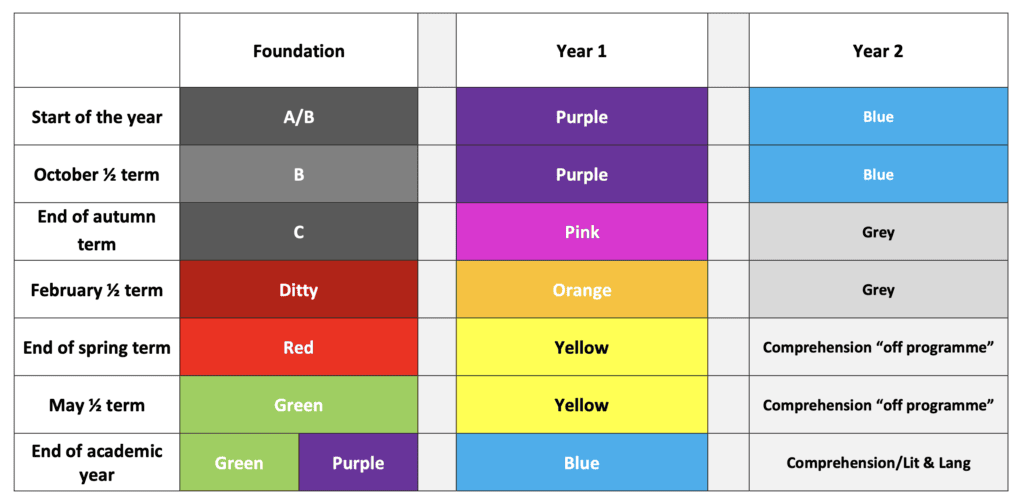
In the summer term, the government asks us to do a phonics check of all the Year 1 children. That gives us extra information about their progress.
Early reading skills are embedded through the use of phonics, as well as discussions around books and comprehension in whole class reading sessions. Sharing stories, information texts and poetry with the whole class or small groups is also used widely to develop a love for reading. We promote learning in the wider curriculum through reading a wide range of texts that enable our children to access and acquire knowledge using their comprehension skills, so they are ready to move on to Junior School.
Children and staff are encouraged to read for pleasure and we promote a love of reading through daily class story time, regular visits to our revamped library at the heart of the school, reading displays in classrooms, book sharing in assemblies, dedicated reading areas and through events such as World Book Day.
Reading at Home
To continue to develop their love of reading, we expect our children to be practising their reading skills at home as well as at school. Children will bring home a fully decodable book that is aligned with the sounds they are being taught in their phonics lessons. This means children will be able to use and apply their current phonic knowledge to decode words to develop their fluency. Children are encouraged to read and re-read their book as well as discussing it with an adult afterwards. We call these our ‘I can read’ texts.
For every 5 reads (both in and out of school) the children are awarded a gold star in their reading records. Along with the star they are entered into the reading raffle where they can win a free book in assembly. The stars also add up and the children work towards bronze, silver, gold, platinum and diamond certificates.
Children also have their own personal log in details to Bug Club where they are able to read a wide variety of rich texts in the form of eBooks. Children will be allocated a selection of books and once read and the quizzes have been completed, the programme will release a new series of texts for them to read. These eBooks come with fun and engaging quizzes for the children to complete, which will help to develop their comprehension skills. On successful completion of these quizzes, children are able to earn virtual rewards which they can then ‘spend’ in their Bug Club World. These texts are called our ‘We can read’ texts as they are not aligned with our phonics programme but are there to promote a love of reading as well as encourage ‘family’ reading time together.
Your child can log in here: www.activelearnprimary.co.uk
If your child does not know their log in details, please speak to their class teacher.
Useful Documents
Read Write Inc Speed Sounds chart
Phonics Screening Check: Parent Presentation Feb 2025
RWI Parent Presentation and Demo Morning - October 2024

